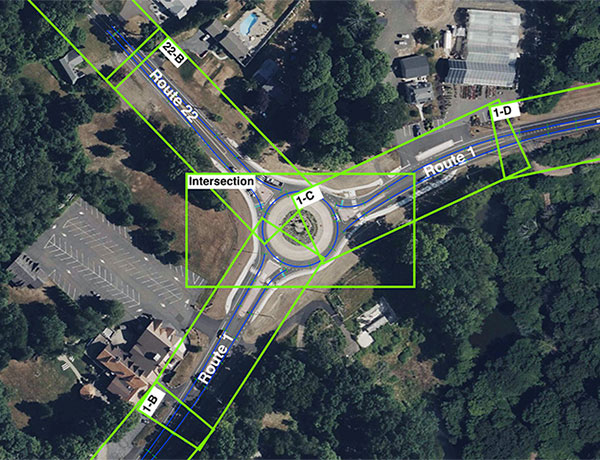
That’s what’s driving UHart Professor Clara Fang to study how drivers behave in roundabouts, as well as their impact on the environment. Fang, the chair of the Department of Civil, Environmental, and Biomedical Engineering in the College of Engineering, Technology, and Architecture, has received a $217,000 research grant for the cutting-edge study from the Connecticut Department of Transportation and the Federal Highway Administration.
Roundabouts allow for a continuous flow of traffic, reducing frequent stops, accelerations, and decelerations that are primary contributors to vehicle emissions. For that reason, they are touted as a potentially sustainable alternative to traditional intersections. Fang’s research will focus on some Connecticut roundabouts to explore how these designs might lower pollution levels and help improve air quality.
“Intersections are often hotspots for vehicle emissions due to the stop-and-go nature of traffic,” Fang explains. “Roundabouts, by promoting a more consistent speed, have the potential to reduce emissions of carbon monoxide and nitrogen oxide, both of which are key pollutants in urban areas.”
Fang’s research team includes Song Wang, assistant professor in civil engineering, and two third-year undergraduate students, Kai Thammalath and Young Dinh. By participating in the project, the students will gain invaluable hands-on experience in data processing and simulation modeling, aligning with the University’s mission to give students applied learning opportunities that prepare them for future careers in engineering and research.
To conduct the study, Fang’s team will use drones to capture detailed video of roundabouts to give the team precise data on vehicle speed, trajectory profiles, and driver gap acceptance, which will be analyzed in the University of Hartford’s transportation research lab. The team will then use microsimulation modeling to closely analyze traffic flow and interactions at each roundabout.
In 2023, Fang was awarded a grant for a previous study using artificial intelligence to evaluate and predict infrastructure needs of Connecticut’s more than 5,000 bridges. That effort was spotlighted in the Hartford Courant and other news outlets.
This new grant will position Fang's high-resolution research on roundabout performance at the forefront of sustainable transportation, poised to shape future policies. The study will engage students in groundbreaking, applied engineering research and, Fang hopes, reveal insights on roundabouts as an eco-friendly urban planning choice for Connecticut and beyond.
Clara Fang, Chair of Civil, Environmental & Biomedical Engineering Department and program director of Civil EngineeringIntersections are often hotspots for vehicle emissions due to the stop-and-go nature of traffic. Roundabouts, by promoting a more consistent speed, have the potential to reduce emissions of carbon monoxide and nitrogen oxide, both of which are key pollutants in urban areas.